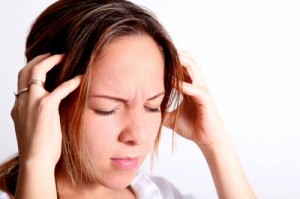Have you had a concussion in the past and received concussion treatment?
If you’re saying ‘yes’ to both of the above, then you may be interested to learn that there is a potential link between the two conditions, which could mean suffering a previous concussion, one or more, means you may be more susceptible to migraines in the future.
Not convinced?
This is by no means a definitive answer, however two studies have shown that there certainly could be a link, and that further research needs to be done.
What does this mean?
Basically, if the link proves to be true, a more targeted treatment option could be developed for patients who have suffered a head injury in the past, having received concussion treatment, and who then go on to experience migraines, or migraine-like symptoms. On top of this, knowing that there is a link means prevention could be put into place, and that is great news for those involved.
The first study which raised this intriguing possibility took a selection of 74 high school football players and asked a selection of questions regarding whether they had suffered from headaches and migraines in the past, and whether they had suffered a concussion as a result of a sporting injury. 34% of those questioned reported a history of migraines, with a further 28% reporting sinus headaches instead. 37.5% reported undergoing concussion treatment in the past, and out of that 37.5%, 41% reported having migraines since that time.
The general rate for migraine suffering in the general population is around 16%, so this set of statistics seems to show that there is a link between concussions in the past and resulting migraines in the future.
A further study certainly added more weight to this argument.
A random selection of 25 patients aged between 12 to 19 years, all regular sports players of varying types, reported that all of them had experienced headaches between sustaining their injury and then returning back to their particular sport, and that 68% of those were migraines, accompanied by regular migraine symptoms, such as nausea, photophobia, visual disturbances, vestibular symptoms, and neurocognitive problems.
Of course, these two studies don’t solidly prove or otherwise whether there is a link, but they certain raise a huge question mark of possibility, and where there is a question mark, further research must be done. If this is proven to be the case, this is great news for both present and potential migraine sufferers, because targeted treatment may be more effective as a result.
If you are at all concerned about migraines, concussion, or both situations together, then don’t worry for a second longer. Call the practice now on 03 8652 1628 to arrange an appointment to discuss your situation with one of our friendly, helpful, and highly experienced staff. Where migraines are concerned, help is certainly at hand after a thorough consultation and proper diagnosis of your situation.

